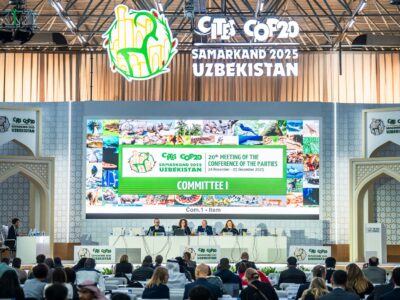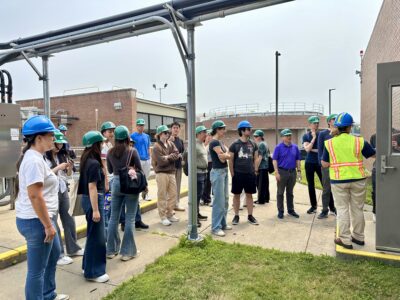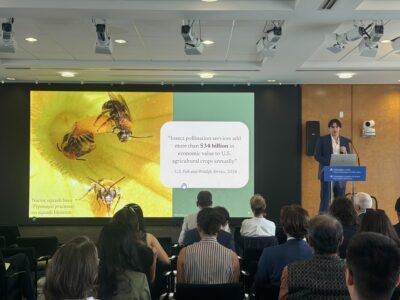
Comprising the panel were various diplomats from around the world who had participated in the Rio +20 intergovernmental processes and negotiations. Panel speakers in attendance included Pedro Andrade (Brazil), Thibault Devanlay (European Union), Selwin Hart (Barbados), Tuti Irman (Indonesia), Mohamed Khalil (Egypt), Tobias Ogweno (Kenya), Eduardo Orteu (Spain) and Brianna Peterson (Canada). Head of Policy Coordination and Inter-Agency Affairs for the United Nations Environmental Programme (UNEP), Mundjaradzi Chenje, also joined the discussion. Chenje focused largely on assessing the main achievements and gaps resulting from the UN Conference.
The panel acknowledged disappointment with the lack of concrete commitments from the UN member states involved. Yet, the panelists did note that they saw some hope in the push to create a set of sustainable development goals by 2015, a process that the United Nations has already started. Whatever the UN decides to do in the coming year, the panelists agreed that the impact of Rio will also depend on how other sectors of society behave, from individual governments to businesses and private citizens.
“The time comes when you have to balance ambition with reality,” said Tobias Ogweno, a member of Kenya’s UN mission. Ogweno noted hundreds of commitments made in the past have been left unfulfilled. Yet, Ogweno saw some hope in Rio, including in the proposed sustainable development goals: “The conference was successful given the climate under which the negotiations were going on. The sustainable development goals are not an end, but a means to an end.”
By hearing about the firsthand experiences of the panelists who attended the conference, the event allowed MPA-ESP students the rare opportunity to examine the essential components of the Rio+20 outcome document, “The Future We Want,” from the very individuals who took part in the negotiation process.
When it came to the question of who is really represented by the outcome document title, “The Future We Want,” Brazil’s Pedro Andrade had the answer, stating that “All sectors of society need to incorporate the idea of sustainable development – it’s not only about governments. It’s about collective responsibility.”
After the panel discussion, the diplomats and the students engaged in lively one-hour long question and answer session. One of the main topics addressed was the real impact of the Rio +20 conference’s commitments in the face of the environmental challenges facing the world today, namely with regard to climate change; biodiversity loss and unsustainable patterns of production and consumption; the engagement of civil society in the context of intergovernmental negotiations; and the consequences of the North-South development divide in implementing sustainable policies.
“Few environmental programs in the world enjoy the privilege of being just five miles away from major United Nations processes such as Rio+20,” said panel moderator Juan Rengifo-Borrero, a 2012 graduate of the MPA-ESP program. “The panel was an excellent opportunity to take advantage of this physical proximity as it allowed the students to have a firsthand look at intergovernmental policymaking. At the same time, the negotiators were able to have a substantive and spirited debate on reflections and concerns generated outside the UN walls, in the creative and solid academic atmosphere that the MPA-ESP program offers.”
Students in the MPA in Environmental Science and Policy (MPA-ESP) program enroll in a year-long, 54-credit program offered at Columbia University’s School of International and Public Affairs (SIPA), in partnership with the Earth Institute. Throughout this one year program, students are immersed in courses that combine Columbia University’s hands-on approach to teaching public policy and administration with pioneering thinking about the environment. During the summer semester, students learn the fundamentals of environmental science, while the fall and spring semesters focus on teaching the policy and economics necessary to becoming successful environmental analysts and managers. Please visit our website to learn more about the program.



